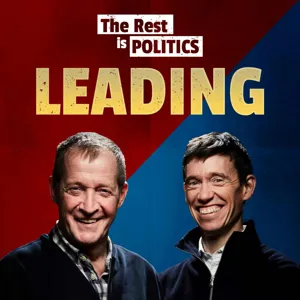Podcast Summary
Creating spaces people want to spend time in: Placemaking is a collaborative approach to enhancing local communities by focusing on people's needs, bringing together sectors, and resulting in economic growth and societal benefits.
Placemaking is a collaborative approach to creating high-quality spaces that benefit both people and economies. According to our guests, Hugh Thomas from Cardiff Council, Karen Finlayson from PwC, and Katie Trout from West Midlands Growth Company, placemaking involves creating spaces that people want to spend time in, bringing together the public, private, and voluntary sectors to enhance local communities, and focusing on the needs of all users. A prime example of successful placemaking is the regeneration of London's King's Cross, which has resulted in thousands of jobs and homes, increased cultural enrichment, and an annual gross value added of £1.42 billion. By focusing on people and their needs, placemaking contributes to economic growth and societal benefits, making it a crucial aspect of urban development.
Cities Transforming Themselves: Cardiff, Bradford, and Birmingham: Cardiff revitalizes its central business district, Bradford invests in professional services and culture, Birmingham redevelops Digbeth as a creative hub, all cities enhance economies and living spaces for residents
Cities like Cardiff, Bradford, and Birmingham are transforming themselves by investing in their infrastructure, culture, and community. In Cardiff, the revitalization of the central business district with the new BBC Wales headquarters and public spaces has made it more welcoming and attractive to visitors. Bradford, which has been underinvested for years, is now seeing significant investment in professional services and is set to benefit from being the city of culture in 2025. In Birmingham, the redevelopment of Digbeth has turned it into a hub for the creative and digital sector, with a focus on preserving the area's history and culture. These cities are not only improving their economies but also creating better living spaces for their residents.
Effective placemaking transforms urban areas: High-speed rail and public-private investments drive placemaking, making cities more livable and attractive with sustainable projects and new neighborhoods.
Effective placemaking, driven by public and private sector investments, can significantly transform urban areas and make them more livable for citizens. This was highlighted in the discussion about Digbus in Cardiff, where the arrival of high-speed rail accelerated regeneration efforts, and projects like the reopening of the canal quarter contributed to making the city more sustainable and attractive. Similarly, in Birmingham, the £1.9 billion Smithfield regeneration project is transforming a former wholesale market site into a new neighborhood with 3,000 new homes and 8,000 jobs, and the city's hosting of the Commonwealth Games helped boost the local economy and put it on the global stage. Overall, these examples demonstrate the importance of continuous urban reinvention and the role of placemaking in creating vibrant, livable communities.
2022 Commonwealth Games brought £870m economic boost, half in West Midlands: The Games generated significant economic benefits, including 55 inward investment projects, 2,500 jobs, and a shift in international perceptions, while prioritizing affordable housing, brownfield sites, and local skills to prevent gentrification and ensure inclusive growth.
The 2022 Commonwealth Games brought a significant economic boost of £870 million to the UK economy, with over half of it generated in the West Midlands. The region's growth company led a successful business and tourism program, changing international perceptions and securing 55 inward investment projects, creating 2,500 jobs, and landing major events. To prevent gentrification and ensure new developments are accessible, the West Midlands insists on a minimum of 20% affordable housing, using local wages as a benchmark. They also prioritize brownfield sites and job creation through private businesses investing in local skills. In Cardiff, a focus on social rent housing has also been effective. In summary, a balance of affordable housing, job creation, and community consultation is crucial to prevent gentrification and ensure economic benefits are accessible to all.
Investing in infrastructure projects for city growth: Investing in infrastructure projects like housing and transportation systems is vital for city growth and competitiveness, but can come with costs leading to delays and budget overruns. Despite challenges, it's crucial for the UK to continue investing for international competitiveness and inclusive, green growth.
Investing in infrastructure projects, such as housing development and transportation systems, is crucial for the growth and competitiveness of cities in the UK and beyond. The Cardiff Council's efforts to build affordable housing and connect businesses with schools in deprived communities serve as a strong example of how such investments can benefit local populations. However, these projects often come with significant costs, which can lead to delays and budget overruns, as seen with HS2's Houston Terminus. Despite these challenges, it is essential for the UK to continue investing in infrastructure to remain competitive on the international stage and to achieve inclusive and green growth.
Investing in infrastructure and connectivity brings indirect benefits: Collaborative effort between public and private sectors needed for significant scale of investment in infrastructure and connectivity to stay competitive and respond to green agenda
Transformational projects, such as investing in infrastructure and connectivity, bring about significant indirect benefits that are often overlooked in business cases. These benefits include staying competitive with European counterparts and responding to the green agenda. However, there is a challenge with the equity of investment and the scale required. While the government's leveling up fund is important, it needs to be delivered at a much greater scale. The private sector also has a role to play in financing and investing in these projects, but it should be driven by economic, social, or financial benefits. Karen and Katie emphasized the importance of private sector involvement and emphasized that it's not just the taxpayer's responsibility to fund these projects. For example, the Cardiff Crossrail project, which received £100,000,000 from the leveling up fund and an equal amount from the Welsh government, only goes so far in delivering a comprehensive network compared to competitors. Overall, investment in infrastructure and connectivity is crucial, but it requires a collaborative effort between the public and private sectors and a significant scale of investment.
Collaboration between private, public, and academia for infrastructure and social mobility: Devolution deals empower regions to control funding, make informed decisions, and prioritize investments for economic growth and community needs.
The private sector, public sector, and academia can effectively collaborate to invest in major infrastructure projects and social mobility, with a significant role for devolution in enabling local leaders to control funding and make informed decisions about investments in public spaces. The West Midlands, for instance, recently secured a £1.5 billion devolution deal, which includes greater budget autonomy, a single pot for negotiating with the government, and the opportunity to retain 100% of business rates for up to 10 years. This deal empowers the region to borrow against future rates to invest in economic growth and designate up to 6 levelling up zones. The goal is to move towards greater fiscal devolution from Whitehall, allowing local authorities and combined authorities to utilize funding effectively and prioritize investments that best serve their communities.
Effective placemaking requires devolution and fiscal decentralization: Devolving more powers and resources to cities and local councils can lead to more effective and community-driven projects and investments, prioritizing income distribution, income, safety, work-life balance, and cultural heritage.
Devolution and fiscal decentralization are crucial for effective placemaking projects and socio-economic growth in cities. According to a recent PwC report, the public prioritizes income distribution, income, and safety, work-life balance as the most important factors for a prosperous city. Cities like Oxford, with strong universities, natural beauty, diversity, and cultural heritage, have been identified as strong performers. However, the process of devolution and the distribution of funding to cities and local councils for decision-making needs to be more strategic and comprehensive across the country. The UK government retains a significant portion of tax revenues, leaving cities with limited control over their finances. Devolving more powers and resources to cities and local councils can lead to more effective and community-driven projects and investments.
Devolving fiscal responsibilities for effective placemaking: Devolving fiscal responsibilities to local places enables effective placemaking through investment and collaboration between public, private, and academic sectors, while ensuring equitable growth and investment across all areas.
While major cities offer strong tourism and investment opportunities, they also come with challenges such as affordability and inequality. To address these issues and ensure that smaller cities and towns also benefit from large-scale projects, devolution of fiscal responsibilities and accountability to a local level is crucial. This would enable local places to invest and collaborate effectively, bringing together public, private, and academic sectors, and working in partnership with communities. However, securing public funding remains a key factor in making these opportunities a reality. Furthermore, placemaking can happen on a micro scale, not just in major regeneration projects, and local councils play a vital role in continuing this investment at the local level. Overall, the discussion emphasized the importance of placemaking, the benefits it brings, and the challenges cities face in undertaking these projects, with a focus on ensuring equitable growth and investment across all areas.
Cities driving inclusive and sustainable economic growth: Cities excelling in health, education, and environment perform economically, but a balanced approach is needed for inclusive and sustainable growth, considering regional differences.
Key takeaway from this special Spotlight podcast in partnership with PwC is that cities play a crucial role in driving economic growth, but it's essential to ensure that growth is inclusive and sustainable. According to PwC's Good Growth Cities Index, cities that excel in areas like health, education, and environment tend to have stronger economic performance. However, achieving good growth requires a balanced approach that prioritizes both economic prosperity and social well-being. It's also important to note that regional differences can significantly impact a city's ability to achieve good growth. Therefore, policymakers and city leaders must consider these factors and work towards creating policies that promote inclusive and sustainable growth for all residents. You can read more about the Good Growth Cities Index and our economic growth and regional development coverage at pwc.co.uk/goodgrowth and newstatesman.com/spotlight, respectively. Thanks for tuning in.





